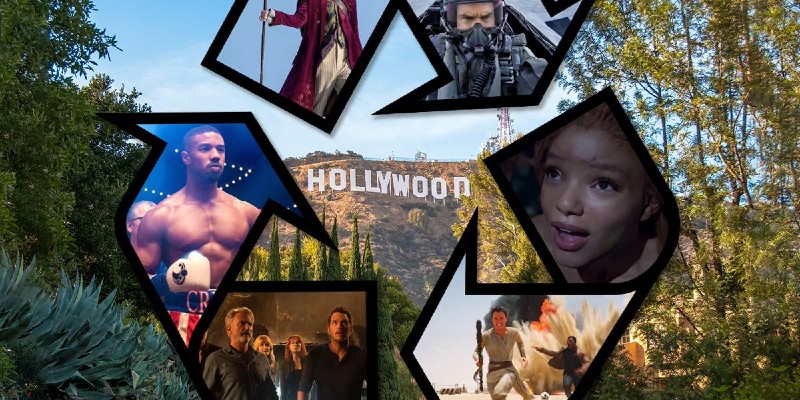Hollywood has a long memory—and an even longer history of remaking it. From Ghostbusters and The Lion King to Batman and The Matrix, Flixtor, the entertainment industry has shown a seemingly insatiable appetite for reboots, remakes, and reimaginings. What was once an occasional trip down memory lane has now become a full-blown trend dominating studio slates and box office schedules. But what’s fueling this obsession? Are reboots a sign of creative bankruptcy, or are they simply savvy strategies in a high-stakes, ever-evolving industry? More importantly—do they add real value to audiences, or are we just paying to see the same story with a prettier filter? Let’s dig into the reasons behind Hollywood’s reboot culture and whether it’s enhancing or exhausting the cinematic experience.
The Rise of the Reboot: A Snapshot
To be clear, reboots are not a new phenomenon. Classic films like Scarface (1983) and The Thing (1982) were themselves remakes. But what used to be occasional experiments are now a central business model. In the last decade, the number of remakes and reboots has skyrocketed, with studios revisiting everything from ‘90s rom-coms to ‘80s action flicks to early 2000s teen dramas.
Major examples include:
-
The Lion King (2019) – A nearly shot-for-shot CGI remake of the 1994 animated classic.
-
Ghostbusters: Afterlife (2021) – A reboot/sequel hybrid that aimed to bridge generations.
-
Spider-Man – Rebooted three times in just two decades.
-
Dune (2021) – A critically praised update on the cult classic.
Clearly, this isn’t just about nostalgia—it’s about business.
The Business of Familiarity
At the heart of Hollywood’s reboot addiction lies one undeniable truth: familiarity sells.
1. Built-In Audiences
Reboots reduce risk. Studios know there’s already an existing fanbase, which makes marketing easier and box office returns more predictable. In an industry where a single flop can cost hundreds of millions, recognizable IP (intellectual property) feels safer than a new idea.
2. Global Markets
Familiar franchises travel well across international borders. A character like Batman or a brand like Jurassic Park needs no cultural translation—it already has global resonance, making it attractive to overseas markets like China and India.
3. Streaming Wars
With the rise of Netflix, Disney+, and other platforms, the demand for content has exploded. Reboots allow streaming services to quickly populate their libraries with high-visibility titles that drive subscriptions.
Creative Value vs. Creative Repetition
So, are reboots just lazy recycling? Not always.
✔️ When Reboots Work
Some reboots genuinely add value:
-
Fresh perspectives: West Side Story (2021), directed by Steven Spielberg, was not only visually stunning but also corrected cultural missteps of the original by casting Latinx actors in Latino roles.
-
Modernization: Battlestar Galactica (2004) transformed a campy ’70s show into a complex political sci-fi saga.
-
Technological upgrades: Mad Max: Fury Road (2015) used modern filmmaking to reinvent a post-apocalyptic universe with visceral impact and feminist depth.
❌ When Reboots Fail
Then there are the cash grabs:
-
Shallow remakes: Total Recall (2012) or The Mummy (2017) stripped away the original’s charm without adding anything new.
-
Overreliance on nostalgia: Some films bank too heavily on callbacks and Easter eggs, forgetting to tell a compelling story of their own.
-
Fan fatigue: Constant reboots of franchises like Spider-Man risk confusing audiences and diminishing emotional investment.
The Psychology of Nostalgia
Why do audiences keep coming back for more, even when they know they might be disappointed? One word: nostalgia.
Reboots tap into our emotional memories—where we were when we first saw a film, who we watched it with, what it meant to us. It’s less about the plot and more about the feeling. And Hollywood knows how to monetize that feeling.
But nostalgia can be a double-edged sword. If studios prioritize sentiment over storytelling, they risk creating hollow shells that disappoint rather than delight.
Are We Losing Original Stories?
One of the biggest criticisms of the reboot craze is that it crowds out originality. With so much focus on repackaging the past, are new voices and stories getting the attention they deserve?
There’s truth in that concern. Indie filmmakers and fresh IP often struggle to secure funding or wide release because studios prefer “safe bets.” However, streaming platforms have emerged as a haven for original storytelling. Think of films like Everything Everywhere All At Once or The Banshees of Inisherin—unique, genre-bending stories that found success thanks to alternative distribution paths.
What the Future Holds
Reboots aren’t going away anytime soon. In fact, we’re already seeing announcements for new versions of:
-
Harry Potter (as a streaming series)
-
Shrek (a potential franchise revival)
-
Twilight (reportedly in early development)
However, the backlash is also growing. Audiences are starting to demand more than nostalgia—they want meaning, innovation, and sincerity. The most successful reboots of the future will be those that honor the original while boldly charting new territory.
Final Verdict: Do Reboots Add Value?
Yes—when done right. Reboots can reintroduce powerful stories to new generations, correct past mistakes, and breathe new life into beloved worlds. But they must go beyond surface-level homage. A good reboot asks not just what to retell, but why it’s worth retelling now.
In a world where content is king and competition is fierce, the key to reboot success isn’t just familiarity—it’s freshness with purpose.
